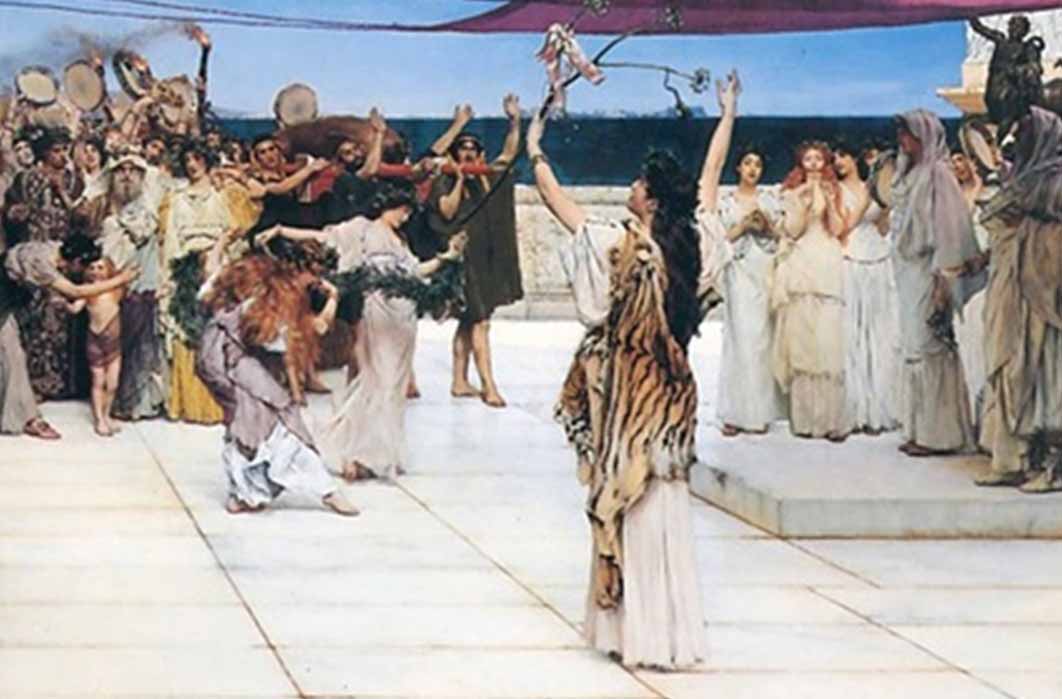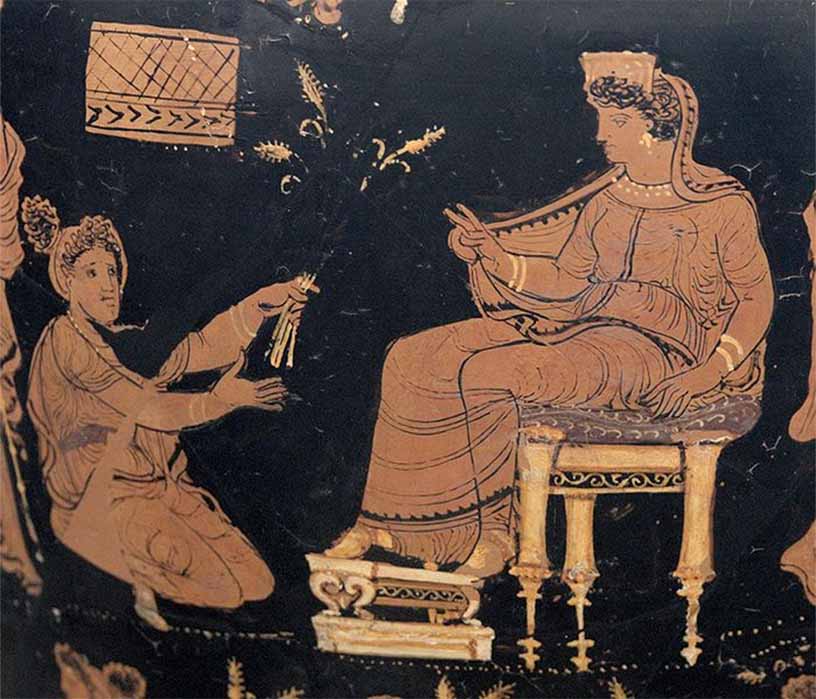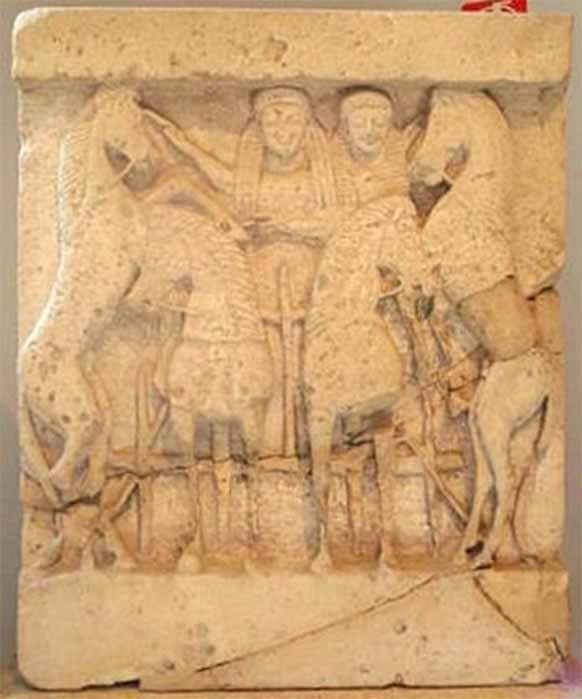
Homeric Hymn to Demeter Or The Thesmophoria – Which Came First?
Evoking early agrarian rituals which celebrated the primal mysteries of birth, death, and resurrection, the Homeric Hymn to Demeter has the distinction of being amongst humankind’s first literary compositions honoring agricultural renewal and the Great Mother Goddess tradition. Thought to have been composed within 50 or so years after Homer’s epics, the Homeric Hymn to Demeter was penned in the seventh century BC and is one of a series of 33 Homeric hymns which honor individual deities. They are called Homeric, not because they were composed— or sung— by the poet known as Homer, but because they employ the same meter used in the epics: dactylic hexameter or six feet per line. These Homeric Hymns were originally sung as prayers and while there is no record of a specific performance of the Homeric Hymn to Demeter—hereafter referred to as the Hymn— most scholars agree that a portion of the Hymn was likely sung at the cult festivals honoring Demeter. It is useful to note that up until the eighth century BC, Greek culture had been conveyed orally only—not by written documents.

Demeter (left) handing ears of wheat to Metanire, the queen of Eleusis (Public Domain)
The Hymn begins when an agreement is reached between Persephone’s father, Zeus— Lord of the Gods—and his brother Hades— Lord of the Underworld, to allow Hades to abduct or marry Persephone without the knowledge or consent of either mother, Demeter, or daughter, Persephone. The abduction is the event that spurs the action of the myth and resonated with women of the Greek world whose marriages were made in this fashion. At heart, the Hymn is a woman’s story. All the major roles are played by females and the areas of concern: marriage, agriculture, and sacrifice are in the feminine realm.
Matrilineal Succession
Moreover, the Hymn honors matrilineal succession—a detail often overlooked in Greek literature. The intergenerational relationships seen in the poem are between Demeter, Persephone, and Demeter’s mother, Rheia (Rhea). Rheia is the Titan Mother Goddess who is mother to six of those living on Mount Olympus and is, in turn, daughter to Gaia, Mother Earth herself, the paramount primogenitrix Earth Goddess responsible for both Greek pantheons—the Titans and the Olympians. In the Hymn, Demeter is twice referred to as Rheia’s daughter, moreover, Rheia, as grandmother to Persephone, ultimately, plays a pivotal role in the story. It is Rheia who mediates between Zeus and Demeter in finding a resolution to the crisis after Demeter stops the seasons when she holds the earth as ransom until Persephone is released from the land of the dead. Thanks to Rheia, Zeus finally intervenes by forcing Hades to return Persephone to her mother’s earthly domain. Hades adheres to Zeus’s request but not before luring Persephone into eating a pomegranate seed; the mere act of eating binds Persephone to Hades for a few months each year corresponding to the dormant winter season.

Relief of Demeter in her horse drawn chariot with her daughter, Persephone, and with rampant horses flanking the chariot (CC BY-SA 3.0)
Time and again in Greek literature, students of the classical world take for granted the interplay between the male generations of the various paternal houses. Overwhelmingly androcentric, this is particularly true in the Homeric epics where women play a minor role to their leading men. When maternal genealogy comes up in these epics it is devalued next to the paternal bloodlines. But in the Hymn, beginning with Gaia and ending with Persephone, the family tree is matrilineal and noteworthy in its omission of males.
Zeus as father is in the story, but his presence is worthy of defiance. In addition to putting Persephone in peril at the outset, Zeus was unwilling to lift a finger to come to her aid. Ultimately, Zeus’s sovereignty was largely thwarted by the females, his superfluous intervention symbolizes patriarchal power which exists not only to separate women from each other but, perhaps more importantly, functions to suppress the conveyance of maternal genealogy.
- Thesmophoria: Feminine Consciousness in Ancient Greece
- Fatally Disrupting The Thesmophoria: The Savagery Of Greece’s Citizen Wives
- The Original Meaning Of The Mysteries Of The Ancient World
In a society that separates daughters from mothers through virilocal marriage (where the bride resides with the husband’s family), not only was Persephone robbed of a loving mother, but she was robbed of a wizened grandmother and the thousand-and-one foundational stories about her foremothers that a matrilineal-rich culture would provide. By setting off the basic conflict, patriarchy supplants the mother-daughter dyad in favor of matrimony. To be sure, maternal lineage was inhibited when the young girls were spirited away from their natal homes, often never seeing their mothers again. Foley maintains: For ancient women, Demeter and Persephone may have represented the extraordinary endurance of the bond between women of different generations in the same family, a bond that carried women through the physical separation from their family that could so radically mark their lives.




